Through this guide we’re going to take a deep dive into the definition of foraging and why it’s a little more complex than a simple paragraph.
Foraging is a fundamental behaviour observed in various organisms, including humans. It refers to the act of searching and obtaining food resources in the environment to meet one’s nutritional needs. This behaviour is not limited to a particular species or habitat; rather, it is a universal phenomenon that has existed since the dawn of life on Earth.
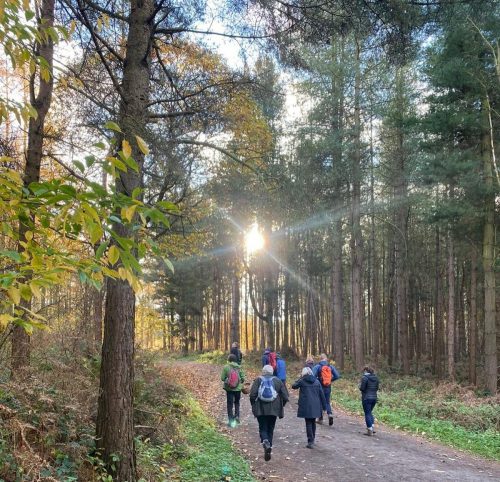
Foraging can take various forms depending on the organism and its ecological niche. In simpler organisms such as bacteria and protists, foraging involves the uptake of nutrients from the surrounding environment. In more complex organisms like animals, foraging includes a range of activities such as hunting, scavenging, and gathering. The ultimate goal of foraging is to find and acquire food resources that provide the necessary energy and nutrients for survival and reproduction.
The historical significance of foraging
Foraging has played a crucial role throughout human history, shaping our evolution, culture, and social structures. Before the advent of agriculture, humans relied solely on foraging for their sustenance. Our ancestors roamed the Earth, exploring different landscapes, and honing their foraging skills to gather wild plants, hunt animals, and fish from rivers and lakes.
The success of their foraging endeavours determined their survival and shaped their societies.
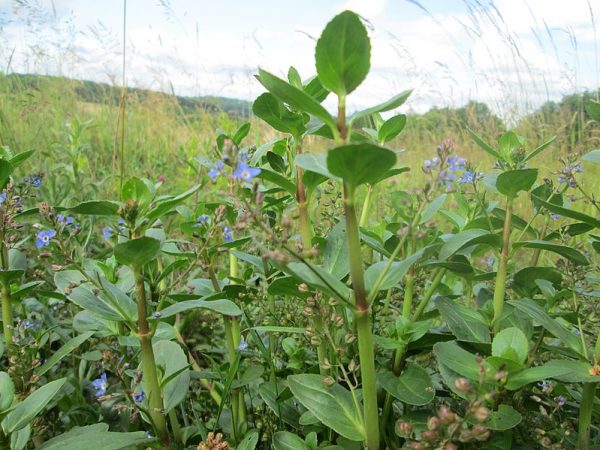
Foraging was not only a means of survival but also a way to acquire knowledge about the natural world. Ancient foragers developed an intimate understanding of their environment, learning to identify edible plants, track animals, and navigate through diverse landscapes. This knowledge was passed down through generations, forming the foundation of human cultural diversity and traditional ecological knowledge.
Read up more on the history of foraging here
Foraging in the animal kingdom
Foraging is not unique to humans; it is a widespread behaviour observed in the animal kingdom. Animals employ various strategies and tactics to optimize their foraging efficiency and increase their chances of finding food resources. Some animals are specialized foragers, adapting to specific habitats or food sources. For example, hummingbirds have long beaks and tongues to extract nectar from flowers, while woodpeckers use their strong beaks to excavate insects from tree bark.
Foraging behaviour in animals is often influenced by factors such as prey availability, competition, and predation risk. Animals have evolved different foraging strategies to deal with these challenges. Some species are solitary foragers, relying on their individual abilities to locate and capture food. Others engage in cooperative foraging, where individuals work together to maximize their foraging success. Foraging behaviour in animals is a dynamic and complex phenomenon, shaped by both genetic and environmental factors.
The evolutionary importance of foraging
Foraging is not merely a survival strategy; it has profound evolutionary implications. Natural selection favours individuals with efficient foraging abilities, as they are more likely to obtain the necessary resources for survival and reproduction. Over time, this leads to the evolution of traits and behaviours that enhance foraging efficiency.
Foraging behaviour has driven the evolution of various adaptations in animals. For example, predators have evolved specialized hunting techniques, such as camouflage or ambush tactics, to increase their chances of capturing prey. Herbivores, on the other hand, have developed adaptations like long necks or specialized teeth to access and process plant resources. These adaptations are the result of millions of years of evolutionary pressure, shaping the diversity of life on Earth.
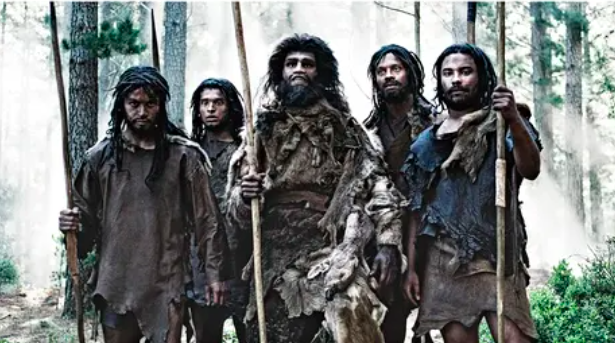
Foraging behavior in humans
Although modern humans have largely shifted to agricultural and industrial food production, foraging behavior still persists in our species.
Foraging activities, such as hunting, fishing, and gathering wild plants, continue to be practiced by certain communities around the world. These traditional foraging practices not only provide sustenance but also maintain cultural traditions and foster a deep connection with the natural world.
In recent years, there has been a resurgence of interest in foraging among urban populations. People are reconnecting with nature and exploring their local environments to discover wild edible plants and mushrooms. Foraging has become a recreational activity, allowing individuals to experience the thrill of finding and harvesting their own food. This renewed interest in foraging reflects a desire to reconnect with our ancestral roots and embrace sustainable food practices.
The impact of foraging on the environment
While foraging can be a sustainable and environmentally friendly way to obtain food, it can also have ecological consequences.
Overexploitation of wild resources can lead to the depletion of populations and disrupt ecological balance. For example, overfishing has led to the decline of numerous fish species and the collapse of marine ecosystems.
To ensure the sustainability of foraging practices, it is essential to adopt responsible harvesting techniques and adhere to conservation guidelines. This includes respecting catch limits, avoiding the collection of endangered or protected species, and promoting the regeneration of wild resources.
By adopting sustainable foraging practices, we can minimize the impact on the environment and preserve biodiversity for future generations.
Foraging in modern society
In today’s modern society, foraging has taken on new forms beyond gathering wild food. With the rise of urban agriculture and community gardens, individuals are reclaiming their food sovereignty and actively participating in the production of their own food. Foraging has extended beyond the wilderness and into our cities, with people growing their own fruits, vegetables, and herbs in urban spaces.
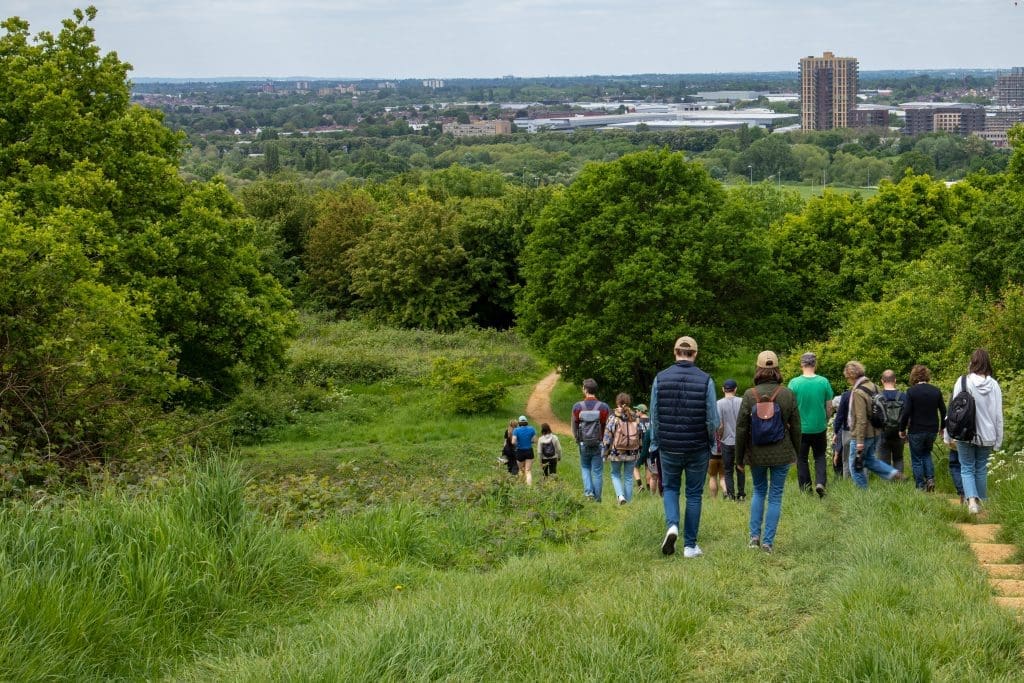
Furthermore, the concept of foraging has expanded to include the gathering of non-food resources. From mushrooms for medicinal purposes to plants for natural dyes and fibers, foraging has become a way to reconnect with nature and tap into its abundant resources. This shift towards a more sustainable and self-reliant lifestyle reflects an increasing awareness of the environmental and social impacts of industrial food production.
To help people begin their journey into foraging we’ve brought together our database of foraging and identification guides to help.
What’s The future of foraging?
As we navigate an increasingly uncertain future marked by environmental challenges and food security concerns, foraging may play a crucial role in shaping our relationship with the natural world. Foraging offers a sustainable alternative to industrial agriculture, promoting biodiversity conservation and reducing our ecological footprint. By reconnecting with nature and embracing the principles of foraging, we can forge a more harmonious and regenerative relationship with the planet.
The future of foraging lies not only in the revival of traditional practices but also in the integration of modern technologies and knowledge. From permaculture design to urban agriculture initiatives, there are countless opportunities to reimagine and reinvent our food systems. By combining ancestral wisdom with scientific advancements, we can create a future where foraging is not only a means of survival but also a way to thrive in harmony with nature.
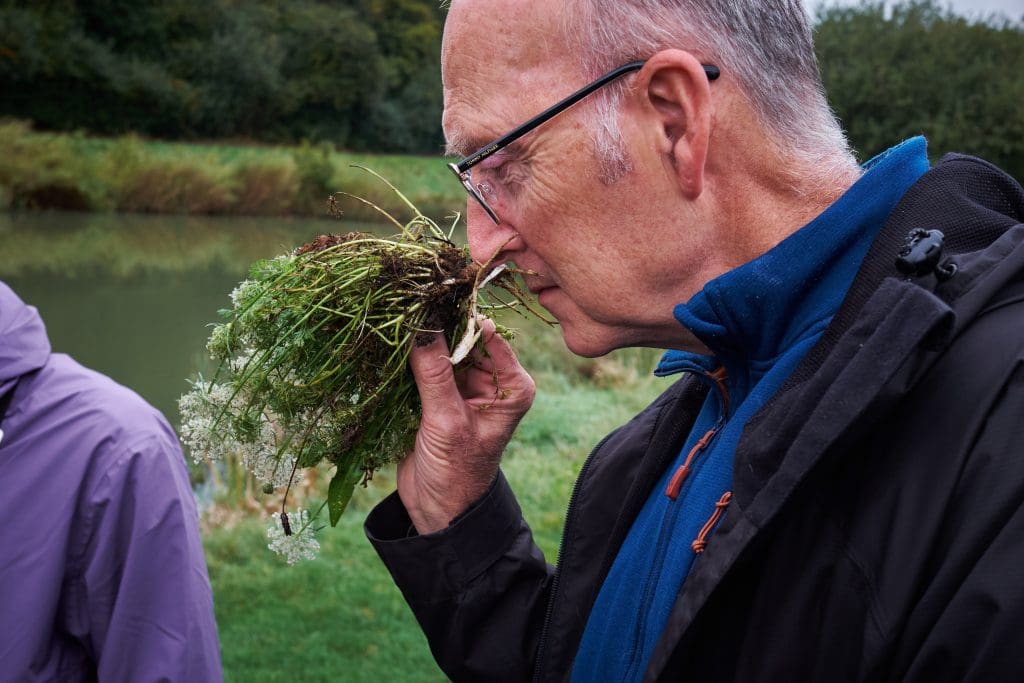
Foraging is a timeless art that has shaped the course of evolution and human history. From the earliest hunter-gatherer societies to the present-day resurgence in urban foraging, this behaviour reflects our innate connection with the natural world. By understanding the definition and evolutionary importance of foraging, we can appreciate its role in shaping our past, present, and future. Let us embrace the art of foraging and embark on a journey of sustainable living, rooted in our ancestral wisdom and the wonders of nature.





